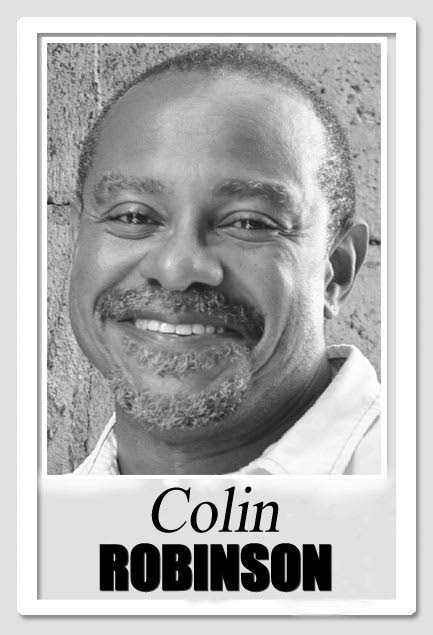The gays’ election agenda

So the gays have an agenda. For the election. A real boldfaced one too, eh. It skips the tripwire topics of marriage recognition and adoption. But it offers even bolder proposals. A queer dozen (13) of them. Most for Parliament, or some minister. But many for the CoP, the DPP, the RHAs. The President:
1. Don’t wait for a Community Recovery Team report. Appoint young leaders of credible groups in hotspot communities to the Senate Independent bench. Alongside LGBTI leaders. Other civil-society advocates for under-represented groups. (They can’t do worse than the respectable middle-aged middle-class folks usually there.)
2. Implement economic development measures. Who can’t find work because of who they are? Folks from the tristate (Beetham-Morvant-Laventille), Train Line, Enterprise, Covigne, etc. But pregnant women, too. People with disabilities. LGBTI folks. People who made a jail. Provide incentives for small employers hiring traditionally-discriminated-against groups.
3. Does Government understand its LGBTI population? Is anyone in key ministries competent to do policy analysis and programme development?
We do it for the elderly, children with disabilities, domestic violence victims. Have those in our nation’s classrooms, delivering key social services, or protecting us, had any training in the specific concerns and vulnerabilities this subset of citizens have?
4. Are we asking them? Are national leaders including LGBTI groups in national consultations and participatory governance? Doing simple cottage meetings? Listening?
5. Several agenda planks are intersectional, linking LGBTI concerns with others. There’s the repeated call to outlaw discrimination by amending the Equal Opportunity Act so it includes LGBTI people (explicitly excluded at the moment), simultaneously offering others protection against age- and health-related discrimination in employment, housing and services.
And a call for Government to make good on its promise to the UN, four years ago now, to establish a national human rights mechanism, something the Equal Opportunity Commission is eager to become.
6. Government investment in the first-year budget of the shared management services mechanism for NGOs (talked about here some weeks ago) is on the list, too. A structure that would make quality management services accessible and affordable to smaller nonprofits. As a return for the investment, government grantees would receive services free.
7. Then there’s violence. First, a response to how it happens in families, something a series of life-histories of working-class LGBTI people conducted by community groups and UWI documented starkly. Excluded from domestic violence orders of protection up to two weeks ago, LGBTI people will still end up pushed out of their homes and onto the street when their identity becomes the subject of household conflict that families instinctively try to solve with licks.
Those who are young are likely to move into sexually vulnerable housing. Men’s shelters are not safe places.
Some women have been turned away from church-run shelters that don’t respond to “that kind of” domestic violence; for others the cost of a place to sleep is persistent religious proselytising.
The solution is perhaps the boldest proposal: add three HDC units for emergency shelter to an existing legal and social-work support programme.
8. Same-sex partners are now covered (wink-wink) by changes to the Domestic Violence Act that just became law.
But for the party in government to perform being unresponsive to the gay agenda, people who aren’t intimate but live under the same roof were denied protection, unless they’re related in law. The “gay agenda” includes fixing that for non-gay folk.
9. A second concern about violence is how it’s policed. Gary Griffith has been a champion of LGBTI people being protected and served. On the agenda is sustainable funding for his three special victims unit; and work to develop one, through training, into the key point-of-contact for responding to homophobic violence.
10. Unsurprisingly included is mandatory comprehensive sex education. As a responsibility for not just the new education minister but both TTUTA and the national PTA. With school system personnel and families of students equally important targets of “sex education for all.”
11. Terrence Deyalsingh’s decision to make HIV prevention policy conform to his personal values is, predictably, also included, calling for TT to immediately conform to the global state of the art, making medical HIV prevention available to all key HIV populations.
12. The Attorney General has repeatedly promised to fix a cruelty in the Children Act that made the Independent bench abstain when it passed: criminalisation of sexual exploration between minors of the same sex with life imprisonment, as it was being decriminalised between opposite-sex youngsters.
There’s a call, too, for the DPP to prosecute anal rape using the rape laws (as Senator Thompson-Ahye recently noted we boasted at the UN they are purposed for), and put Section 13 of the Sexual Offences Act out of business. The orifice shouldn’t determine rape’s penalty.
13. Finally, the agenda makes visible intersex people, whose naturally occurring mixed sexual characteristics give the lie to much evangelical preaching about gender.
It proposes measures to protect them from medical genital mutilation; and allow them and similar adults to pick Male or Female on government IDs. It challenges RHAs to build competence in transgender care.
My readers get a sneak peek: https://bit.ly/2020QueerDozenSoundbites

Comments
"The gays’ election agenda"